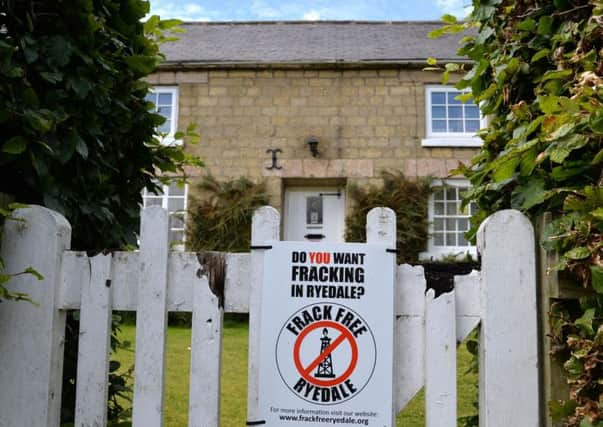Ministers to take decision over fracking


Local Government Secretary Greg Clark will decide whether Cuadrilla can use the controversial mining method at two locations in Lancashire.
The Government justified the move on the grounds the decision has “more than local significance”.
Advertisement
Hide AdAdvertisement
Hide AdLancashire County Council refused the original planning applications and the company has appealed against the decision.
A planning inspector will consider the appeal but the final decision on whether it is allowed will be taken by Mr Clark.
It is the latest example of the Government intervening more directly in efforts to get a UK fracking industry off the ground.
Earlier this year ministers threatened to take responsbilitiy for planning applications for fracking away from councils who persistently delayed decisions.
Advertisement
Hide AdAdvertisement
Hide AdThe process in Lancashire will be closely watched in North Yorkshire where Third Energy is asking for permission to carry out fracking operations on land at Kirby Misperton, in Ryedale.
North Yorkshire County Council was due to make a decision this month but has now delayed it until February.
Shadow Energy Secretary Lisa Nandy said: “It’s hypocritical for ministers to support devolution and local democracy for decision-making over wind farms, only to then trample over the views of local communities when it comes to fracking.
“The Government has completely failed to win public support for these drilling projects, which is not surprising as they abandoned important environmental safeguards. By seeking to impose fracking, public concern is only likely to deepen.”
Advertisement
Hide AdAdvertisement
Hide AdFracking, properly known as hydraulic fracturing, involves the pumping of sand, water and some chemicals at high pressure into underground rock formations.
The process is designed to release gas trapped in the rock which is then piped to the surface.
Environment campaigners argue there are huge risks from the process but energy firms insist it can be done safely.
The Government has repeatedly voiced its support for fracking arguing it will help provide secure energy.